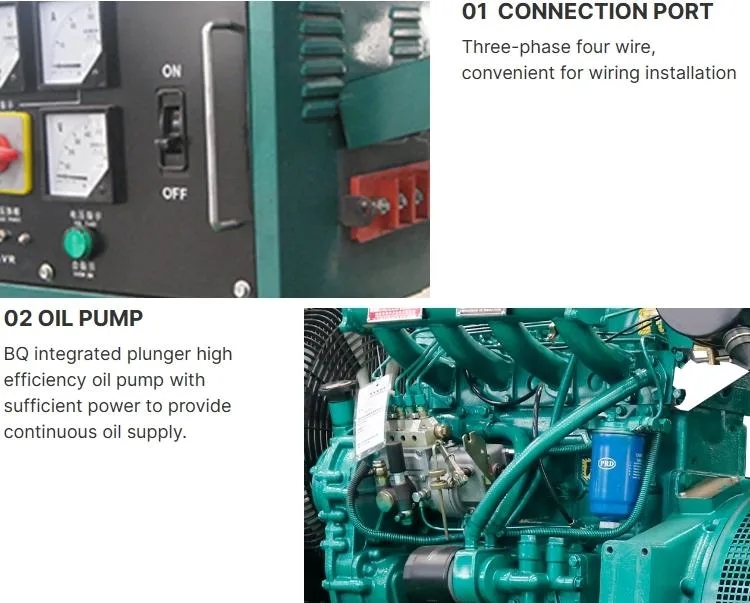Introduction
Diesel generators play a crucial role in providing backup power in various applications where a reliable power supply is essential. One of the key challenges faced by diesel generators is the need to efficiently manage variable load demands. In this article, we will explore the importance of diesel generators in handling variable load demands, the factors that influence their performance, and strategies to optimize their efficiency.
Importance of Diesel Generators for Variable Load Demands
Diesel generators are widely used in applications where a stable and reliable power supply is critical, such as hospitals, data centers, industrial facilities, and remote locations. One of the key advantages of diesel generators is their ability to provide backup power during outages or when the primary power source is unavailable. However, managing variable load demands can be a complex task for diesel generators, as the load requirements can fluctuate significantly over time.
Variable load demands can be caused by factors such as changes in the number of connected devices, varying power requirements of equipment, and unexpected events that require additional power. In such scenarios, diesel generators must be able to respond quickly and efficiently to meet the changing load demands while maintaining optimal performance and reliability.

Factors Affecting Diesel Generator Performance
Several factors can influence the performance of diesel generators when handling variable load demands. Understanding these factors is essential for optimizing the operation of diesel generators and ensuring reliable backup power supply. Some of the key factors affecting diesel generator performance include:
1. Engine Size and Capacity: The size and capacity of the diesel engine play a crucial role in determining the power output and efficiency of the generator. A properly sized engine ensures that the generator can meet the required load demands without straining the engine or compromising performance.
2. Fuel Efficiency: Diesel generators are known for their fuel efficiency, but the efficiency can vary depending on the load demands. Operating the generator at partial load for extended periods can reduce fuel efficiency and increase maintenance costs. It is essential to match the load demands with the generator's capacity to maximize fuel efficiency.
3. useful reference : A reliable load management system is essential for optimizing the performance of diesel generators in handling variable load demands. The load management system monitors the load requirements in real-time and adjusts the generator output accordingly to ensure efficient operation.
4. Maintenance and Service: Regular maintenance and servicing are crucial for ensuring the optimal performance of diesel generators. Routine inspections, oil changes, filter replacements, and other maintenance tasks help prevent breakdowns and ensure that the generator operates smoothly under varying load demands.
Optimizing Diesel Generator Efficiency for Variable Load Demands
To optimize the efficiency of diesel generators for variable load demands, it is essential to implement strategies that maximize performance, fuel efficiency, and reliability. Some of the key strategies for optimizing diesel generator efficiency include:
1. Load Testing and Sizing: Conducting load tests to determine the actual load requirements of the system is essential for sizing the diesel generator correctly. Oversized or undersized generators can lead to inefficiencies and increased operating costs. By accurately sizing the generator based on the load demands, you can optimize its efficiency and performance.
2. Load Shedding and Priority Setting: Implementing load shedding techniques can help prioritize critical loads during periods of high demand. By shedding non-essential loads or adjusting the priority settings based on the load demands, you can ensure that the generator operates efficiently and provides power to the most critical systems.
3. Fuel Management and Monitoring: Monitoring fuel consumption and implementing fuel management strategies are essential for optimizing the fuel efficiency of diesel generators. By tracking fuel usage, identifying trends, and implementing measures to reduce fuel consumption during low load periods, you can improve the overall efficiency of the generator.
4. Remote Monitoring and Control: Utilizing remote monitoring and control systems allows operators to monitor the performance of diesel generators in real-time and make adjustments as needed. Remote monitoring systems provide valuable insights into generator operation, performance data, and maintenance alerts, enabling proactive management of variable load demands.
5. Energy Storage Integration: Integrating energy storage solutions such as batteries with diesel generators can help improve efficiency and reliability, especially in applications with fluctuating load demands. Energy storage systems can store excess power during low load periods and discharge it during peak demand, reducing fuel consumption and optimizing generator performance.
Conclusion
Diesel generators play a vital role in providing backup power for applications with variable load demands. By understanding the factors that affect diesel generator performance and implementing strategies to optimize efficiency, operators can ensure reliable power supply, reduce operating costs, and minimize downtime. Proper sizing, load management, maintenance, and fuel monitoring are essential for maximizing the efficiency of diesel generators in handling variable load demands. With careful planning and proactive management, diesel generators can meet the challenges of variable load demands while maintaining optimal performance and reliability.
